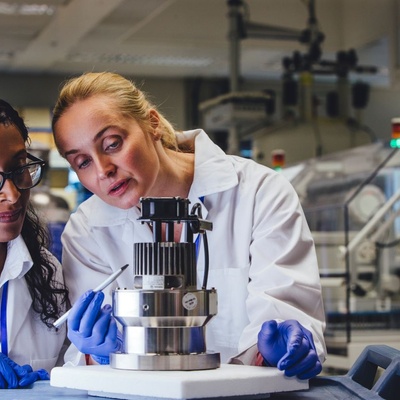Exploring the Immunization Research Industry
The immunisation research industry encompasses various organisations, including universities, government laboratories and agencies, not-for-profit organisations, and private biotech and pharmaceutical companies. These entities collaborate to develop vaccines against various infectious diseases and work towards improving existing vaccines.
While researchers in other countries may have developed some groundbreaking vaccines, the Australian immunisation research community remains dedicated to understanding viruses, creating new vaccines, and addressing the challenges of mutant strains and specific demographics.
For instance, Australian scientists have played a significant role in vaccine development, with notable achievements such as developing the world's first cervical cancer vaccine at the University of Queensland in 2006. Researchers in Australia are currently focused on developing vaccines for diseases like cancer, HIV, malaria, and the seasonal flu. They also explore innovative delivery methods, including edible vaccines, needle-free skin patches, and microneedle technologies, to improve vaccine administration and accessibility.
Some of the largest companies that are leading immunisation research include Pfizer, BioNTech, Sinovac and Moderna, typically investing more than a quarter of their annual revenue into research and development as the core of their business with many companies spending around $50bn a year on research.
Companies need to maintain this spending in order to remain competitive, which means immunisation research positions are often in high demand and very well compensated, but the entry requirements are also very high.
Educational Pathways for Immunization Research
The specific academic requirements may vary depending on the role and level of responsibility within the research field. Here are three significant areas of focus in immunisation research and the corresponding educational qualifications:
1. Vaccine Research and Development
Vaccine research and development involves working at the forefront of virus research, conducting experiments, and studying the behaviour of viruses.
Research assistants in this field may be involved in tasks such as growing cell cultures, cloning DNA, and performing lab tests. A bachelor's degree in biology, chemistry, biochemistry, or microbiology is typically required to qualify for a research assistant role in vaccine research and development. However, as you progress in your career, pursuing postgraduate research study at the honours, master's, or PhD level may be necessary.
2. Clinical Trials
Clinical trials are essential in vaccine development, where potential vaccines are tested on humans to ensure their safety and efficacy. Medical doctors and vaccine scientists oversee these trials. At the same time, research officers with undergraduate qualifications play a crucial role in managing trial processes, recruiting and interviewing patients, handling biological samples, and writing research reports. A public health degree is recommended to work in this immunisation research area. Public health programs provide knowledge in data management and analysis and practical work placements to prepare students for careers in clinical trials.
3. Vaccine Surveillance
Once a vaccine is approved and rolled out to the public, vaccine surveillance becomes crucial to monitor its effectiveness and identify any adverse side effects. Research officers must collaborate with organisations such as the National Centre for Immunisation Research and Surveillance (NCIRS) to track the vaccine's performance and develop immunisation guidelines. A minimum requirement for working in vaccine surveillance is a bachelor's degree in public health or science. A master's degree in public health, focusing on epidemiology, can further enhance job prospects in this field.
Job Prospects and Opportunities
The field of immunisation research offers a wide range of job prospects and opportunities for career growth. Professionals in this field can work in various settings, including universities, government laboratories, private biotech and pharmaceutical companies, and not-for-profit organisations. Here are some potential career paths in immunisation research:
Vaccine Research Scientists are responsible for conducting research, developing new vaccines, and improving existing vaccines. This role requires a strong background in biology, chemistry, or related fields and advanced research skills.
Clinical Research Associates are vital in managing and monitoring clinical trials. They ensure trials adhere to regulations, recruit and interview patients, and collect and analyse data. A degree in public health or a related field is typically required for this role.
Epidemiologist: Epidemiologists study patterns and causes of diseases in populations. In the context of immunisation research, epidemiologists analyse vaccine effectiveness, monitor vaccine safety, and contribute to public health policies. A master's degree in public health, with a specialisation in epidemiology, is commonly required for this role.
Vaccine manufacturing specialists work on scaling up vaccine production processes and ensuring the quality and consistency of vaccines. They collaborate with researchers and engineers to optimise manufacturing methods and address challenges related to large-scale production. A background in engineering or pharmaceutical sciences may be beneficial for this role.
Vaccine Policy and Public Health Specialists focus on developing and implementing vaccine policies, coordinating immunisation programs, and promoting public awareness of vaccines. They work closely with government agencies, healthcare organisations, and community stakeholders to ensure widespread vaccine coverage and public health safety.
The Future of Immunization Research
The COVID-19 pandemic has highlighted the importance of vaccine development and the need for continuous research in immunisation. The advancements made during the development of COVID-19 vaccines, particularly in RNA-based technology, have paved the way for future breakthroughs against other infectious diseases. The use of RNA vaccines has the potential to accelerate research against challenging targets like HIV, tuberculosis, and malaria.
Additionally, the field of immunisation research is focusing on improving vaccine stability and accessibility. Scientists are developing thermally stable vaccines that can withstand storage and transportation challenges, particularly in low- and middle-income countries. Freeze-dried vaccines stored at room temperature for extended periods are also being explored. Furthermore, the role of vaccines in combating antibiotic resistance is gaining increasing attention and will likely be a significant area of research in the future.
Conclusion
A career in immunisation research offers exciting opportunities to contribute to public health and make a lasting impact on global well-being. Whether you are interested in basic vaccine research, clinical trials, vaccine manufacturing, or vaccine policy and public health, there are various paths to explore within the field. By pursuing the appropriate educational qualifications and gaining practical experience, you can play a vital role in developing and improving vaccines that protect individuals and communities from infectious diseases. Stay updated with the latest advancements in the field, embrace innovative technologies, and join the global community of immunisation researchers working towards a healthier future for all.
Spotlight On: Research Scientist, Immunisation (Biotech Sector)
Because of the "brain drain" of scientists to Institutes overseas, attracting top research talent in Australian can be difficult. Our client requires applicants to be superbly qualified (usually PhD) and have hands-on experience with highly specialized research techniques.
We have worked closely with this client in filling more than 15 scientist roles, and building a unique and deliberate culture from the ground up. Our most recent placement was a Research Scientist, with specialisation in Immunisation. The account manager and head recruiter for this client is Susan Macleod.
Susan holds an Honours Degree in Microbiology/Biochemistry and has experience working at a renowned UK based research institute. She also has almost 20 years experience recruiting in the Biotechnology sector in Sydney and incomparable personal and professional networks and search expertise. As a qualified and experienced Scientist she is able to talk to candidates on their level, explaining the company, the opportunity and the Science in way that both informs and attracts.
After conducting an extensive search of the market Susan considered 64 potential applicants before settling on a shortlist of 5, one of whom secured the role after a thorough interview and verification process.
Other Senior Roles Filled in March 2023
We work with our clients on roles at all levels, from entry level through to management and beyond. We typically place dozens of permanent roles each month, and more than one hundred temporary and contract positions.
Here are some of the more interesting senior and challenging-to-fill roles we have filled in the last month.
Business Development Manager - Consulting Laboratory Services
QC Lab Manager - Pharmaceutical Industry
Technical Services Manager - Chemical Manufacturing Industry
QA Manager - Food Industry
Validation Associate - Pharmaceutical Industry
Continuous Improvement Manager – Food Industry
QA Co-Ordinator – Food Industry (Regional)
For a list of our current advertised vacancies please go visit our website. If you would like to discuss your recruitment needs with us at any time, please don’t hesitate to reach out to your local office.





